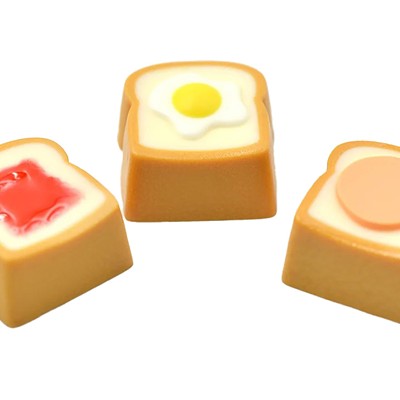The original Final Fantasy came with a booklet entitled “Explorer’s Handbook” that explained, among other things, the various groups of adventurers that could be assembled in the game. After considering groups of fighters, magic users and minglings of the two, it concluded: “The course of your game’s development will depend upon the make-up of your party. Enjoy the development of your Final Fantasy, the combination of characters is your own making.”
A dozen Fantasys later, the game’s combination of characters includes a moody entrenchcoated young man with stringy Kurt Cobain hair, an indefatigably upbeat girl bedecked in love beads, and a sarcastic black dude with a bird nesting in his Afro.
As entertaining as these characters are, they don’t really represent me. Sure, I can identify with aspects of their personalities, which I come to know as they thrash their emotions out in hours of gorgeous digital anime. But in an effort to vary one of videogaming’s most venerable franchises, the designers of Final Fantasy XIII have streamlined the game until I no longer have much of myself invested in the characters.
Each of Final Fantasy XIII’s characters has a handful of roles that they can play — fighter, spellcaster, saboteur, etc. — and it’s my responsibility to swap them in and out of those roles, varying the shape of the party by shifting what the game calls “Paradigms.” These amount to the same things that the “Explorer’s Handbook” explained — mixtures of fighters and magic users in varying proportions.
As the game progresses, I’m able to modify the individual characters by selecting benefits for them and powering-up their weapons, but these feel more like add-ons than anything life-changing. In past Final Fantasy games, I needed to create characters with diverse skills and figure out how to use them at various times. Now, sweeping changes are implemented at the touch of a button in the midst of the game’s real-time battles. I don’t develop characters — I deploy them.
The mechanics of Final Fantasy XIII seem intent on accelerating the action and engaging players with broad strokes. This overlooks how engaging deep thinking can be, and the way that complex choices brought a frantic pace to the old turn-by-turn battles. Now the game has been smoothed over with push-button challenges, and the Final Fantasy is developed more by the machine than by me.
THE GOOD: Square-Enix produces some of the most spectacular digital animation and imagery to be found on Earth or any other mystical land. An entire lake is transformed mid-tempest into waves of motionless crystal. A hero straddles a motorcycle that is formed from two entwined female bodies. A planet hangs in space, cracked open like a shell. For sheer visual splendor, Final Fantasy XIII has no equal.
THE BAD: Aside from a single main character, my team is controlled by the computer during battles. While the computer is logical, it can’t learn. If I was casting lightning spells on a monster, and I noticed that they had no effect, I’d change my tactics. But not the computer — it just keeps zapping away.
THE BOTTOM LINE: A fantastical drama that exchanges intricate role-playing for streamlined action, sacrificing some of the Final Fantasy spirit, but none of the style.




















